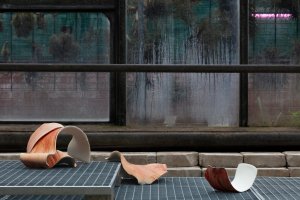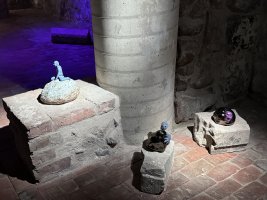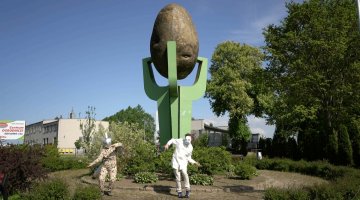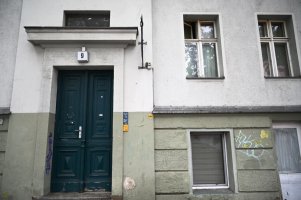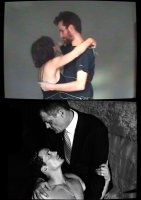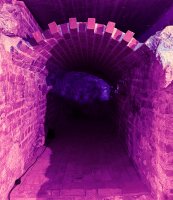Upcoming Events
Profile
A place that has grown over the centuries.
The historic cellar belonged to a patrician house that can be traced back to 1464. It was home to a succession of particularly wealthy families from the town of Spandau, including several mayors. In the 18th century, it was converted into a palace for the royal regimental commanders and remained associated above all with Prince Henry of Prussia. The building then served as a guest house and court until it was destroyed by a bomb in 1944. In the 1950s, the remains were removed, and the cellar filled in. It was only when the new building, which housed a cinema and a food market, was demolished in 1987 that the cellar was rediscovered. It was archaeologically examined and was preserved when the new residential building was constructed, so that it can now be used as a very special art gallery.
Upcoming
Past
Galerie Historischer Keller
Carl-Schurz-Str. 49/51, B 13597
Berlin West
We–Sa 12–18h
Nur im Rahmen von Kunstausstellungen geöffnet
